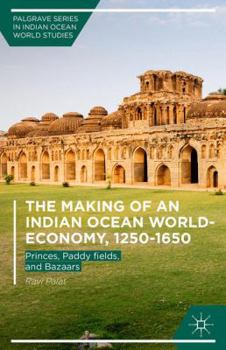The Making of an Indian Ocean World-Economy, 1250-1650: Princes, Paddy Fields, and Bazaars
To counter Eurocentric notions of long-term historical change, Wet Rice Cultivation and the Emergence of the Indian Ocean draws upon the histories of societies based on wet-rice cultivation to chart an alternate pattern of social evolution and state formation and traces inter-state linkages and the growth of commercialization without capitalism.
Format:Hardcover
Language:English
ISBN:1137542195
ISBN13:9781137542199
Release Date:October 2015
Publisher:Palgrave MacMillan
Length:305 Pages
Weight:1.14 lbs.
Dimensions:0.8" x 5.5" x 8.5"
Related Subjects
HistoryCustomer Reviews
0 rating





